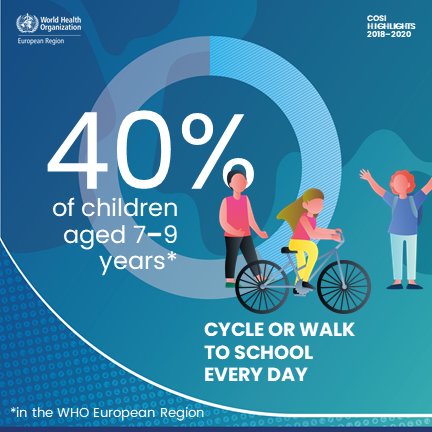
Virtual media briefing with @hans_kluge on the #COVID19 situation across the European Region, including international travel & the growing spread of a new sub-variant. twitter.com/i/broadcasts/1…
Science. Surveillance. Responsibility.
Three words that encapsulate my three main messages to the @WHO European Region today, amid the latest developments in the #COVID19 narrative.
@hans_kluge
Three words that encapsulate my three main messages to the @WHO European Region today, amid the latest developments in the #COVID19 narrative.
@hans_kluge
First, going with the #science.
From the information available to @WHO, the SARS-CoV-2 virus variants circulating in #China are those that have already been seen in Europe and elsewhere.
@hans_kluge
From the information available to @WHO, the SARS-CoV-2 virus variants circulating in #China are those that have already been seen in Europe and elsewhere.
@hans_kluge
We share the current view of the @ECDC_EU, that the ongoing surge in #China is not anticipated to significantly impact the #COVID19 epidemiological situation in the WHO European Region at this time.
But we cannot be complacent.
@hans_kluge
But we cannot be complacent.
@hans_kluge
While we acknowledge that #China has been sharing virus sequencing information, we need detailed and regular information, especially on local epidemiology and variants, to better ascertain the evolving situation.
@hans_kluge
@hans_kluge
It is not unreasonable for countries to take precautionary measures to protect their populations, while we are awaiting more detailed information that is shared via publicly accessible databases.
@hans_kluge
@hans_kluge
For those countries in our region introducing such precautionary #TravelMeasures at this time, we are calling for such to be rooted in #science, to be proportionate and non-discriminatory.
@hans_kluge
@hans_kluge
That brings me to my second message – #surveillance.
Over the past year, many countries in our region have greatly reduced their surveillance capacity for #COVID19.
@hans_kluge
Over the past year, many countries in our region have greatly reduced their surveillance capacity for #COVID19.
@hans_kluge
In the first 5 weeks of 2022, variant information on 1.2 million cases was submitted as part of weekly surveillance data to @WHO and our partner, the @ECDC_EU. However, this declined to about 90-thousand cases in the last 5 weeks of the year.
@hans_kluge
@hans_kluge
We commend European countries that have maintained strong genomic #surveillance - including #Denmark, #France, #Germany and the #UnitedKingdom.
@hans_kluge
@hans_kluge
Indeed, recent data from some of these countries are starting to indicate the growing presence of the new XBB.1.5 recombinant virus that has already been spreading rapidly across the #UnitedStates.
@hans_kluge
@hans_kluge
XBB.1.5. variant cases in our region are being picked up in small, but growing numbers, and we are working to assess its potential impact.
@hans_kluge
@hans_kluge
After three long #pandemic years - with many countries grappling with overstretched health systems, shortages in essential medicines, and an exhausted #HealthWorkforce - we cannot afford more pressures on our health systems.
@hans_kluge
@hans_kluge
Such a threat could come from a new variant of concern, anywhere, anytime – including right here in Europe and Central Asia.
@hans_kluge
@hans_kluge
Building upon the lessons learned, we must be able to anticipate, detect and respond in time. This is true not only for SARS-CoV-2, but any emerging health threat.
@hans_kluge
@hans_kluge
Hence my third message for today: responsibility – on the part of governments and the general public alike.
Entering 2023, countries across Europe and Central Asia need to redouble their efforts to implement proven effective strategies and avoid being complacent.
@hans_kluge
Entering 2023, countries across Europe and Central Asia need to redouble their efforts to implement proven effective strategies and avoid being complacent.
@hans_kluge
This means urgently re-investing in and recommitting to enhanced virologic and genomic #surveillance – including wastewater surveillance, as feasible.
@hans_kluge
@hans_kluge
This means investing in and safeguarding the #HealthWorkforce whose precarious situation in many places could undermine the effective provision of health services.
@hans_kluge
@hans_kluge
This means continuing the 5 pandemic stabilizers that have proven so effective:
1️⃣increasing vaccine uptake in the general population;
2️⃣administering additional vaccine doses to priority groups;
3️⃣promoting mask-wearing indoors and in public transportation; [...]
@hans_kluge
1️⃣increasing vaccine uptake in the general population;
2️⃣administering additional vaccine doses to priority groups;
3️⃣promoting mask-wearing indoors and in public transportation; [...]
@hans_kluge
[...]
4️⃣ventilating crowded and public spaces such as schools, bars and restaurants, open-space offices and public transportation; and
5️⃣providing early and appropriate therapeutics to patients at risk of severe disease.
@hans_kluge
4️⃣ventilating crowded and public spaces such as schools, bars and restaurants, open-space offices and public transportation; and
5️⃣providing early and appropriate therapeutics to patients at risk of severe disease.
@hans_kluge
Further, as we have seen, these measures can also reduce the impact of other acute respiratory infections – in particular, #influenza – that our health services are struggling with at this time.
@hans_kluge
@hans_kluge
Science. Surveillance. Responsibility.
All of these must come together all the more, as we enter the fourth year of the #pandemic to ensure a healthier and safer future for all.
@hans_kluge
All of these must come together all the more, as we enter the fourth year of the #pandemic to ensure a healthier and safer future for all.
@hans_kluge
• • •
Missing some Tweet in this thread? You can try to
force a refresh













